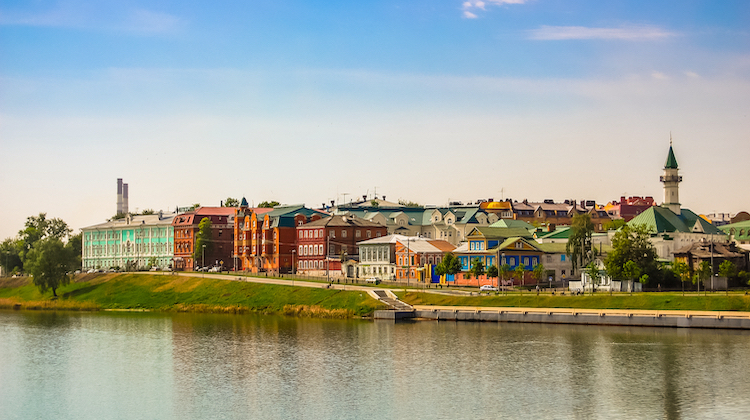For business and career.
Knowledge of the Russian language gives a competitive advantage in the labour market for specialists in various industries, since Russia is a country of unlimited opportunities, attractive for investments of small and medium-sized businesses from foreign partners; There are many branches of foreign companies in Russia. The specialists who manage them have long understood that business success often depends on successful negotiations with Russian partners.
Translation services are relevant, but it is much easier to grasp the true interests of the conversationalist when you understand what he is talking about. In addition, employees will have more respect for the director who communicates with them in their native language. Therefore, many foreigners involved in managing a company's business in Russia strive to master Russian at a good level.
For spiritual and intellectual development and creativity.
Knowledge of the Russian language makes it possible to familiarize oneself with the outstanding achievements of the great Russian culture. Ballet, theater, cinema, literature, music and the visual arts are just a few of the areas in which Russians have created great traditions and continue to bring outstanding innovators to the world. World famous writers and poets written in our language: Sergei Yesenin, Anton Chekhov, Maxim Gorky, Mikhail Lermontov, Vladimir Mayakovsky, Anna Akhmatova, Mikhail Bulgakov and others.
Reading Dostoevsky's novels in translation does not leave a chance to feel all the richness of the Russian soul - if you are deprived of the opportunity to read the original, you also lose half the pleasure. The fact is that in the Russian language there are so many expressions that in other languages it will not even work out. The morphology of Pushkin's language makes it possible to generate an infinite number of words, the existence of which the British did not suspect.
And did you know that getting to know Russian helps you perceive the world differently? Those who speak Russian, in which there are more words for light and dark shades of blue, visually distinguish shades of blue better visually.
For travel and leisure.
Knowledge of the Russian language makes it possible to get acquainted with the unique nature and sights of Russia - a country located in 9 time zones and 5 natural zones (tundra or subtropics, taiga, steppes, mountains, forests); countries where more than 100 ethnic groups live with their own customs, religion, languages and culture, actively interacting with Russian culture, but preserving their national identity.
More than 270 million Russian speakers around the world.
More than 270 million people speak Russian, most of whom live in 15 post-Soviet countries. When a Russian meets a Kazakh or Ukrainian, with a high degree of probability, the conversationalists will decide to speak in Russian. All in all, it is one of the most widely spoken languages in the world.
Russian will help you travel to all Slavic countries.
Russian is English in miniature: it opens up a brave new world. It is similar to other Slavic languages - Serbian, Belarusian, Bulgarian, Ukrainian or Czech.
There are almost no dialects in Russian.
Russian stands out favorably against the background of others, there are almost no dialects in it, and if a Frenchman from Normandy can hardly understand the speech of a Toulouse or Gascon, there is no difference between Murmansk and Vladivostok.
The spoken language is close to the literary one, and the knowledge gained in a language school or studying with a tutor will be enough for a foreigner for everyday communication.
Tourism.
An incentive for learning the Russian language is also Russian tourists who vacation, for example, on the coasts of Turkey and Spain and buy real estate around the world. By the way, the Russian menu can now be seen in restaurants in many countries.
Study abroad.
In Western countries, proficiency in Russian is quite rare, and therefore gives an advantage when entering law schools, business schools and medical universities.
Education in Russia.
For example, a victory in an international Olympiad of the Russian language makes it possible to enter Russian universities without exams and study at the expense of the Russian budget.
Understanding of major world events.
The Russian language is included in the "World Languages Club" and is one of the official languages of the United Nations, into which all documents are translated.
The Russian language is important for science and technology.
According to a recent study, the largest number of scientific publications is published in English, followed by Russian. This applies to chemistry, physics, geology, mathematics, and biology.
Professional communications.
For example, many outstanding chess players (for reading literature) and cosmonauts (for international communication in near-earth orbit) speak Russian to some extent.
The Russian language remains important in the countries that emerged after the collapse of the Soviet Union. In some of them, it is the state or official language in which all legislative acts are published. In others, Russian fulfills certain official functions - for example, it is used in international negotiations - or is a "second language" for a large part of the population.
Knowledge of the Russian language allows you to make new acquaintances around the world - traveling or communicating on the Internet, opens up new opportunities for higher education, research, business communication and doing business in both Russia and other countries.
The linguistic merits of the Russian language, as well as compliance with such criteria of the world language as globality of distribution, variety of functions and expressive means, proves the productivity and competitiveness of the Russian language as a "language of global communication" in today's and tomorrow's integrating world.







